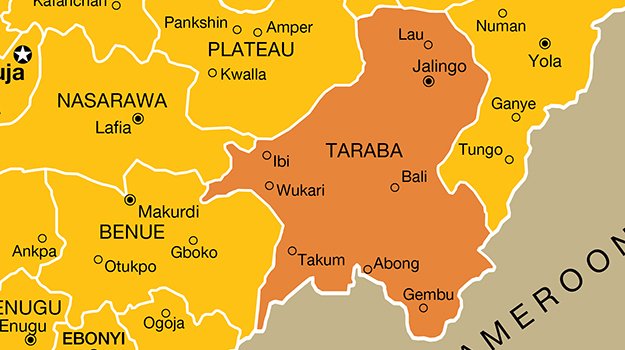In a mounting show of opposition, northern leaders, including the Northern Governors Forum (NGF) and various civil society groups, have voiced strong disapproval of the Tax Reform Bill recently proposed by President Bola Tinubu. Hussaini Kafi writes as heated debates and opposition greet the intended reform.
The bill, which aims to overhaul the country’s taxation framework, has sparked intense debates, especially concerning its potential impacts on the northern region.
The Northern Governors Forum (NGF), which represents the interests of governors from the northern states, has made it clear that it is opposed to the proposed Tax Reform Bill, particularly the amendment to the distribution of Value Added Tax (VAT) to a Derivation-based model. This proposed amendment has been a flashpoint in the debate, with the NGF arguing that it would marginalize the northern states economically.



NGF
In a statement issued by the NGF and read by the Governor of Gombe State, Mohammed Inuwa Yahaya, the governors expressed their concerns that the shift to a Derivation-based model would adversely affect the northern states, which contribute significantly to national VAT revenues but do not benefit proportionately from the distribution. The governors emphasized that companies remit VAT based on the location of their headquarters, not where the goods and services are consumed. As such, they argue that this change would further skew the economic balance against the northern region, which already grapples with developmental challenges.
The NGF has called for fairness and equity in the distribution of resources, urging members of the National Assembly to reject any bill that would harm the northern states’ economic interests. They argue that the proposed amendments are not in the best interest of the North, stressing the need for policies that ensure no region is left behind or marginalized.
Similarly, as the debate over the bill recently intensifies, a coalition of northern groups, including the Forum for Growth and Development of Arewa (FGDA), has issued a stern warning that it will stage protests in opposition to the proposed tax changes. The FGDA, which represents a broad spectrum of northern civil society, is adamant that the tax reforms will have a disproportionate negative impact on the northern states, which already face significant economic challenges compared to other regions.
In a statement released in Kaduna, the FGDA’s Convener, Jibrin Mohammed, condemned the tax reform proposals as “Anti-North bills.” The coalition has threatened to take to the streets to demonstrate against the reforms, which they argue could lead to further economic hardships in the North, particularly in the agriculture and small-scale industries that form the backbone of the region’s economy.
The FGDA’s position aligns with the concerns raised by the NGF, and their call for protest signals growing discontent among northern leaders and civil society organizations. They argue that while the reforms might provide benefits to certain sectors or regions, they fail to adequately address the economic realities of the northern states.
Summary of the Tax Reform Bills
The proposed Tax Reform Bill, transmitted to the National Assembly by President Tinubu on October 3, 2024, is part of a broader fiscal policy overhaul aimed at simplifying Nigeria’s complex tax laws. The package comprises four separate bills: the Nigeria Tax Bill 2024, the Tax Administration Bill, the Nigeria Revenue Service Establishment Bill, and the Joint Revenue Board Establishment Bill.


The Nigeria Tax Bill, which is the central piece of legislation, seeks to consolidate various tax laws into a single, streamlined framework. It will grant the newly proposed Nigeria Revenue Service the authority to collect all national taxes, including royalties and excise duties, which were previously handled by different agencies like the Nigerian Upstream Petroleum Regulatory Commission (NUPRC) and the Nigeria Customs Service. The bill is also designed to simplify the tax collection process and reduce disputes over tax assessments.
One of the most significant provisions of the bill is the planned reduction in personal income tax rates for lower-income earners, which the government claims is a pro-poor measure. Under the proposed reforms, individuals earning up to N800,000 annually would be exempt from paying income tax. This change would benefit a large portion of Nigeria’s workforce, as it is estimated that over 70% of Nigerians earn below this threshold.
However, the tax reform package has been criticized, particularly in the northern region, for its potential to deepen regional disparities.
“The Tinubu administration must understand that Nigeria is not a homogenous society. Each region has its own unique challenges and economic realities,” said Mustapha Salisu Yakubu, an economist and northern policy advocate. “What may work in the southern regions may not be applicable or beneficial for the northern part of the country. We need tax policies that are flexible and tailored to regional needs.”
Implication of the Proposed Tax Reform
The Tax Reform Bill’s impact on the northern region remains a subject of heated debate. While the reforms aim to simplify Nigeria’s tax structure and encourage greater compliance, critics in the North argue that the changes could exacerbate existing regional imbalances. The shift to a Derivation-based VAT distribution system, in particular, has been seen as a threat to the economic stability of northern states, where consumption levels are lower, but industrial activity and VAT contributions are significant.
Northern governors and activists fear that the proposed tax reforms could further marginalize the region, depriving it of essential resources needed for development. The region, which is heavily reliant on federal allocations, is concerned that the tax changes could lead to a reduction in its share of national revenue, thereby deepening the socio-economic disparities between the North and other regions.
Looking Ahead: The role of National Assembly
The next critical step in the tax reform process will be the National Assembly’s deliberation on the proposed bills. With the bills facing significant opposition from some lawmakers, particularly from northern Nigeria. Since the introduction of the Tax Reform Bills by the President Bola Tinubu-led administration, it has sparked intense divisions within the National Assembly.
Senator Ogoshi Onawo of Nasarawa South, for example, has voiced strong opposition, claiming that the reforms are insensitive to the suffering of the people and could worsen the country’s economic crisis.
Senator Ali Ndume

A controversial northern lawmaker, Senator Ali Ndume from Borno South, has been particularly vocal in his criticism. Ndume, in a television interview, expressed his intent to mobilize opposition from other northern legislators, emphasizing that the bills would not be in the best interest of their constituencies.
Initially, the National Economic Council (NEC), under the leadership of Vice-President Kashim Shettima, has also weighed in on the issue. NEC recommended the withdrawal of the bills to allow for more comprehensive consultations and consensus-building among stakeholders.
The National Assembly will play a pivotal role in ensuring that the final version of the tax reform package strikes a balance between simplification, fairness, and equity across the country’s diverse regions.
The opposition to President Tinubu’s Tax Reform Bill from northern governors and groups reflects deep-rooted concerns about regional equity and economic justice. While the bill aims to modernize Nigeria’s tax system, the implementation of its provisions—especially the shift to a Derivation-based VAT model—could have significant repercussions for the northern region. As debates continue, the government will need to find a way to address these concerns to prevent further polarization and ensure that the reforms benefit all Nigerians, regardless of their geographical location.



